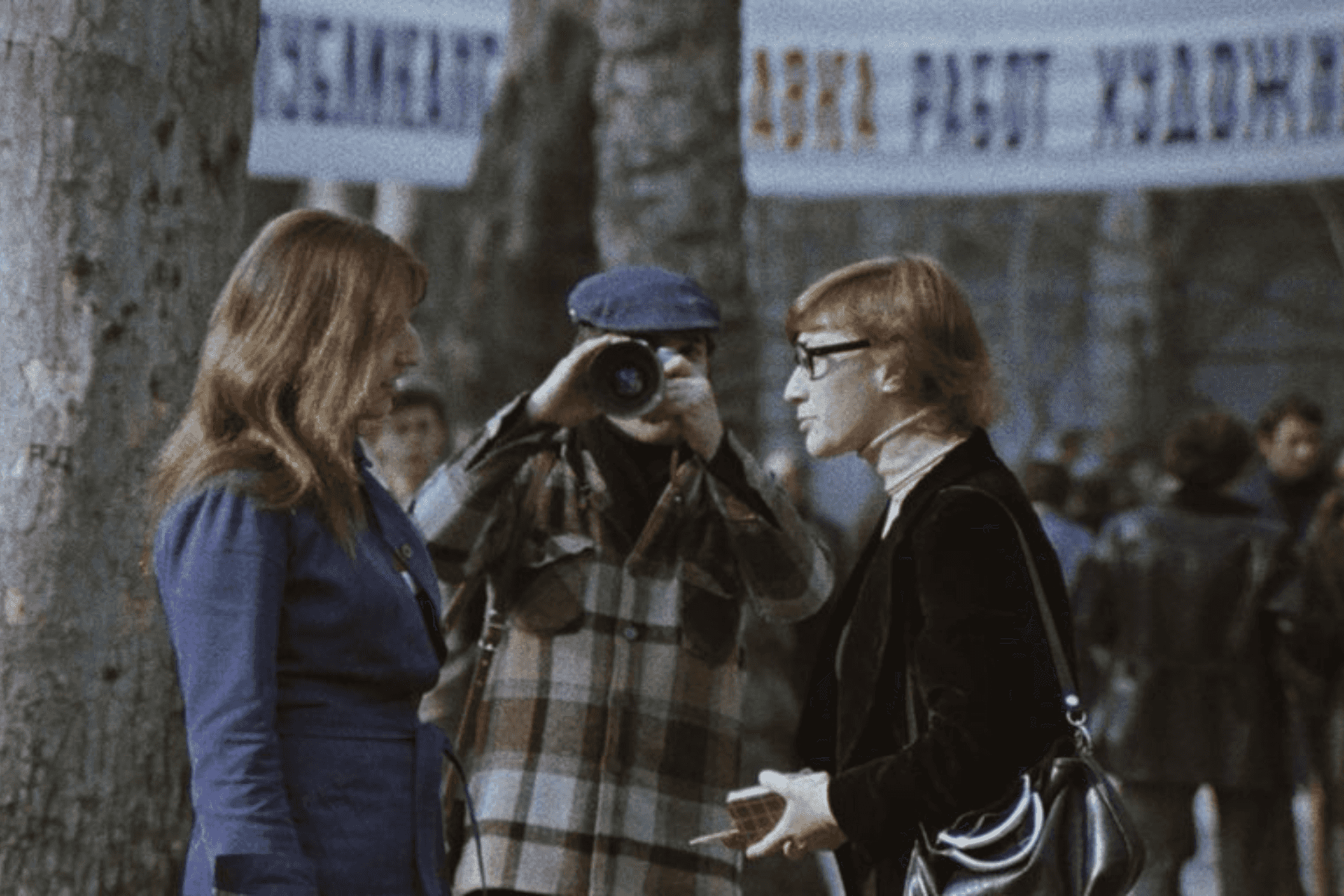
Skazz’s punk set in Tbilisi showed how Georgia’s underground still thrives — raw sound, dark lyrics, and a crowd full of heart.
In mid-March, I went to a punk event at Junkyard, an underground music spot in Tbilisi’s Isani district, just outside the city centre. The venue felt like a literal junkyard, surrounded by neglected Soviet-era factories, a few abandoned cars in a dirt parking lot, and something resembling an empty pool. Tickets ran ₾30 ($11) a pop, with a quick security check at the gate. Once inside, the interior felt like it must have been a mechanic shop at some point, all of its walls and high ceilings blasted with graffiti — welcome to punk town.
Four Georgian bands made up the lineup: Ghame, Vodka Vtraiom, Will Kolak, and Skazz. The headliner, Skazz, was a band I got hooked on over the last year. Like a lot of people around here, I found them through their hit song, ‘Mdevari’. The song’s opening lyrics loosely translate to ‘I’m a stalker in a black coat’. I’d say that tracks well with how lead guitarist Nodo Kuprava described the band’s music in a recent interview: ‘rain and darkness’.
To better understand the context, it’s important to know that Skazz is originally from Kutaisi. At the heart of western Georgia, Kutaisi has deep punk roots stretching back to the late Soviet and post-Soviet years — a time when it must have felt to many Georgians like the world might collapse entirely. Punk music thrives where social systems fail, though, and political stagnation is a go-ahead signal for the youth to hang out, commiserate, and be defiant.
🗞️ Subscribe to the OC Culture Dispatch
For our culturally curious readers: a free, biweekly selection of film, book, and music recommendations from the Caucasus. Our team offers a varied selection of hidden gems, cherished classics, and notable new releases from all over the region, included in our newsletter.
Skazz opened the show with their heavier songs, a sound they’ve leaned into recently. The mosh pit opened up, and the aggression in the room was palpable. There were probably around 150 people at the event, and a healthy 20 or so young guys charged into each other, waving their arms, shoving each other, falling down, picking each other up, and doing it all over again. I stayed on the sidelines — no plans on visiting a hospital that night.
In the past, lead singer Saba Vashakmadze doubled as the bassist at shows. These days, the band has a separate bassist, freeing up Vashakmadze so that he can prowl around the stage, microphone in hand, showing off his stage presence and connecting with the audience. Watching them, it hit me: these guys are the real deal around here — and they know it.
After rattling the room with their hardcore openers, Skazz eased into their classic post-punk material. The crowd began chanting ‘Mdevari, Mdevari’ after each song, hoping to hear their top hit up next. And then it happened. Skazz started playing the fan-favorite — only to stop after 20 seconds. A nice little teaser, right before they started playing ‘Egoist’, which is my personal favorite as of late.
Like most of their official releases, ‘Egoist’ features electronic drums in a drum-and-bass style rhythm, making it feel fast-paced and tense. However, this show only had live drums, which made the experience feel more organic, with tiny human imperfections and a grittier, less synthetic feel than what I’d gotten used to hearing in my headphones. The crowd roared ‘araperi ar makhsovs’ (‘I don’t remember anything’) — the verse opener.
The whole show lasted around 45 minutes. The bittersweet nightcap, naturally, was ‘Mdevari’. The mosh pit came to a halt. Everyone’s phones were in the air, including mine.
I tried not to spend too much time capturing the moment but rather relishing it. As someone who also plays in a band, I know that certain fan-choice songs can start to become a drag when you play them too often. Skazz’s ‘Mdevari’ is by no means a one-hit wonder — the guys consistently put out solid post-punk music. But the song just feels important. In the final verse, Vashakmadze held the microphone to the audience, who knew every word. The audience sang in unison, much to Vashakmadze’s approval.
In a society grappling with the pull between old and new, east and west, authority and independence, Skazz’s music resonates like few others can. As a rebellious genre, punk music tends to be stripped down to the essentials. It’s short, fast, and raw. Post-punk takes all that but is darker, with much more existential dread. A perfect example of that is Skazz’s song ‘Kurota’, where Vashakmadze sings, ‘I have a soul of regret’.
This night ended not with regret, but with that rare feeling you get when you know you were exactly where you were supposed to be.
🗞️ Subscribe to the OC Culture Dispatch
For our culturally curious readers: a free, biweekly selection of film, book, and music recommendations from the Caucasus. Our team offers a varied selection of hidden gems, cherished classics, and notable new releases from all over the region, included in our newsletter.









